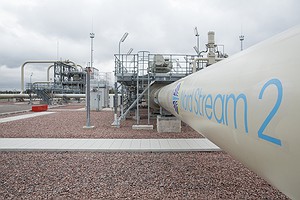National Grid ESO is to launch a series of reforms to speed up the rate at which renewable energy projects can connect to the grid after criticisms that it is slowing progress to net-zero.
Measurers include an audit of energy generators progress on projects, and if they are not moving forward hey will have to either move backwards in the queue or leave, making space for other projects ready to progress and connect. In a further development to help projects to progress even quicker, there will be support to enable developers to build their own connections into the grid.
This follows the decision by the Code Panel, the body in charge of changes to the Codes that govern the energy industry, to recommend changes to Ofgem in how connection contracts are managed, which will enable us to more effectively manage the queue.
To illustrate the scale of the connections challenge, there are approximately 220 projects due to connect to the national transmission system before 2026, totalling circa 40GW – this equates to more than double peak demand in the summer months for all of Great Britain. However only half of these have got planning consent at this stage and some have moved their connection dates back by over fourteen years.
RenewableUK’s Director of Future Electricity Systems, Barnaby Wharton, said: “Rather than allowing speculative bids for grid connections to pile up and create the backlog, these reforms mean that inactive or unready schemes will no longer be allowed to block projects which are ready to go live. Grid connection delays are holding back £15bn of investment in offshore wind alone over the course of this decade, at the very time when we need to boost our energy security as quickly as possible and provide cheap power for consumers to tackle the cost-of-living crisis.”
Latest News
-
Private health provider awards £10,000 to arthritis research team
-
Building Society hands out £1m to tackle inequality
-
Premier League and Comic Relief partnership aims to improve children’s mental health
-
Russell Hobbs launches food poverty campaign in schools
-
Tottenham Hotspur and charities launch film to tackle mental health stigma
-
Cardfactory funds homelessness charity’s team of psychologists
© 2019 Perspective Publishing Privacy & Cookies







Recent Stories